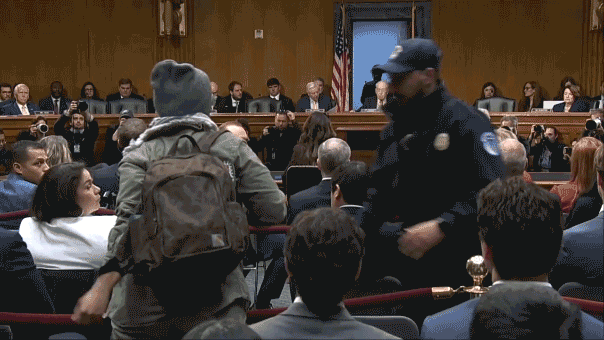Trump administration considering doing away with America's male-only draft system
The National Coalition for Men is challenging the Selective Service System in court, arguing that women should be part of the draft.
A new report from a U.S. military commission concluded that women should be eligible for the draft if the country should ever need to reinstate the system that calls Americans into active-duty service.
The National Commission on Military, National and Public Service determined that the U.S. would be best suited to require both men and women between the ages of 18 and 26 to register for the Selective Service, which would serve as a pool for any future draft. Currently, only men register.
"Should future circumstances become so dire that a draft is required, it is in the national security interest of the United States to be able to draw on the best talent in the country for military service," the commission's report said. "Roughly doubling the pool from which the Nation might obtain conscripts would improve military readiness by raising the quality of those who might serve, as some women would be more qualified to serve than some men."
The report said the commission conducted "extensive deliberations" before reaching their conclusion, calling the inclusion of women "a necessary and fair step."
Selective Service noted in a statement that in order for the commission's recommendations to be put into effect, "the law would first have to be changed should Congress decide to adopt any of the Commission’s recommendations pertaining to Selective Service."
Additionally, because the draft was abolished in 1973, another new law would have to be passed before any Selective Service registrants -- male or female -- would be conscripted. The report notes that a random lottery would then be held and then people would be called in an order based on birth year.
Once a person is called, they would then have to go through a battery of examinations looking at physical, mental and moral fitness before they would actually join the military.
This is just part of the commission's recommendations "to modernize, enhance and improve America's system to draw on the talents, skills and abilities of all Americans if a national emergency requires lawmakers to do so."
The Supreme Court's 1981 decision in Rostker v. Goldberg held that restricting the Selective Service to men was constitutional because registration was primarily meant to prepare for drafting combat troops and at the time women were barred from combat roles.
VETERANS' TIPS ON KEEPING CALM DURING CORONAVIRUS, STAYING SAFE
The 5th Circuit Court of Appeals is currently considering a case that challenges the exclusion of women, after a lower court ruled that it was unconstitutional.
The commission pointed to the lifting of restrictions on women in combat positions in 2015 and the varied roles played by military personnel in determining that the court's reasoning is outdated.
"Indeed, historical analysis shows that conscripts have been assigned to meet a range of military needs during conflict," the report said. "For example, a comparison of the number of personnel inducted during World War II and the total assigned to combat roles reveals that less than half of all conscripts were assigned to ground combat roles in that conflict."
The commission also claimed that barring women from the Selective Service "unacceptably excludes women from a fundamental civic obligation and reinforces gender stereotypes about the role of women, undermining national security."
The expansion of draft eligibility is only part of the commission's recommendations for increasing participation in national service. They recommend a "revolutionary and inclusive approach to service" comprising "comprehensive civic education and service learning starting in kindergarten, service-year opportunities so ubiquitous that service becomes a rite of passage for millions of young adults, and new and revitalized service options for adults of any age, background, or experience.
"By 2031 — the 70th anniversary of President Kennedy's call for Americans to serve their Nation — the Commission envisions that 5 million Americans will begin participating in military, national, or public service each year," the report says.
CLICK HERE FOR THE FOX NEWS APP
Public service includes working for federal, state, tribal or local government, and national service includes non-governmental civilian effort "that pursues and enhances the common good and meets the needs of communities, the States, or the Nation" in areas including health, security and care for the elderly.
The commission hopes that their recommendations can bring about "a culture in which individuals of all backgrounds both expect and aspire to serve their Nation or community and have meaningful opportunities to serve throughout their lifetime."













































